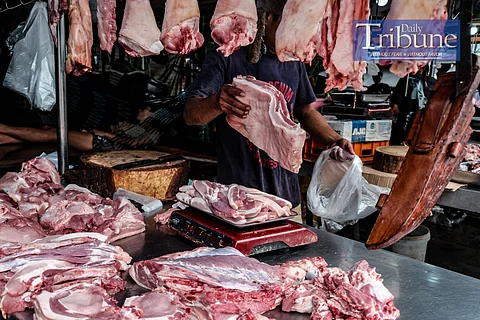
- NEWS
- the EDIT
- COMMENTARY
- BUSINESS
- LIFE
- SHOW
- ACTION
- GLOBAL GOALS
- SNAPS
- DYARYO TIRADA
- MORE

Pork Producers Federation of the Philippines (ProPork) president Eric Harina said on Sunday that consumers can expect lower pork prices in the coming days.
In an interview, Harina noted that farm gate prices are currently declining, with pork selling between P230 and P240 per kilo this week. He attributed the drop mainly to sluggish consumer demand.
“We’re expecting it to go down to around P220 per kilo by next week. One reason is the slow sales. Retail prices of pork have been too high,” he explained in Filipino.
Harina also commented on the implementation challenges of the Anti-Agricultural Economic Sabotage Act, or Republic Act No. 12022, which targets hoarding, profiteering, and cartel activities in the agriculture sector.
“It’s difficult for the law to be implemented,” he said.
He acknowledged efforts by the Department of Agriculture to manage pork prices, especially through government-subsidized Kadiwa stores. “I hope the Kadiwa program can be further expanded,” he added.
Harina also assured the public that there will be no pork supply shortage from July to August, citing weak demand as the primary reason.
